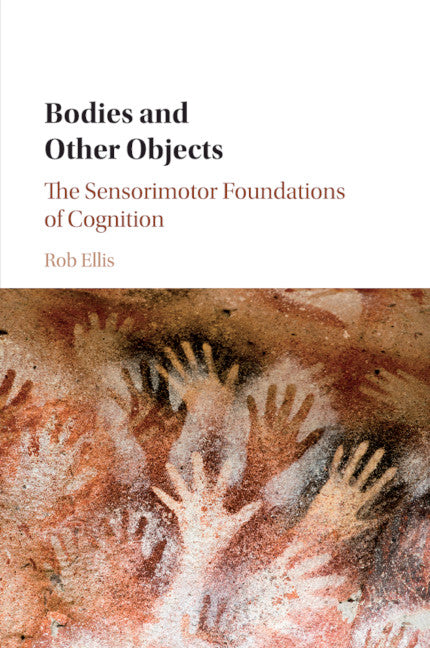Freshly Printed - allow 6 days lead
Couldn't load pickup availability
Bodies and Other Objects
The Sensorimotor Foundations of Cognition
Describes a unified framework for embodied cognition that reconciles sensorimotor and representational accounts of cognition, connecting currently disparate traditions.
Rob Ellis (Author)
9781107629806, Cambridge University Press
Paperback / softback, published 29 October 2020
212 pages, 2 b/w illus.
23 x 15 x 1.2 cm, 0.32 kg
'This book will challenge cherished philosophical positions. Not just commitment to representational cognition, but also prior conceptions of agency. As you read it you will begin to realise that perhaps the greatest challenge to our discipline is not the replication crisis, but instead a collective failure to inspect our core theoretical assumptions.' Tom Dickins, The Pyschologist
Bodies and Other Objects is written for students, scholars and anyone with an interest in embodied cognition - the claim that the human mind cannot be understood without regard for the actions and capacities of the body. The impulse to write this book was a dissatisfaction with the inconsistent, and often shallow, use of the term 'embodied cognition'. This text attempts to reframe cognitive science with a unified theory of embodied cognition in which sensorimotor elements provide the basis for cognition, including symbolic exchanges that arise within a society of agents. It draws ideas and evidence from experimental psychology, neuroscience, philosophy and anthropology in reaching the conclusion that human cognition is best understood as the means by which exchanges within a constantly evolving network of skilful bodies and objects are regulated so as to further human interests.
Introduction
1. Reframing cognition
2. Vision and action
3. Tool use and tool incorporation
4. Agency, objects and others
5. Material cultures
6. Language
7. A synthesis: networks of human agents as physical symbol systems.
Subject Areas: Cognition & cognitive psychology [JMR], Cognitivism, cognitive theory [JMAQ], Psychology [JM]


